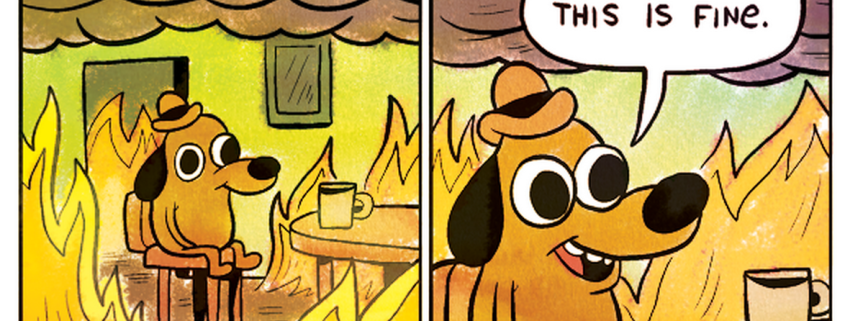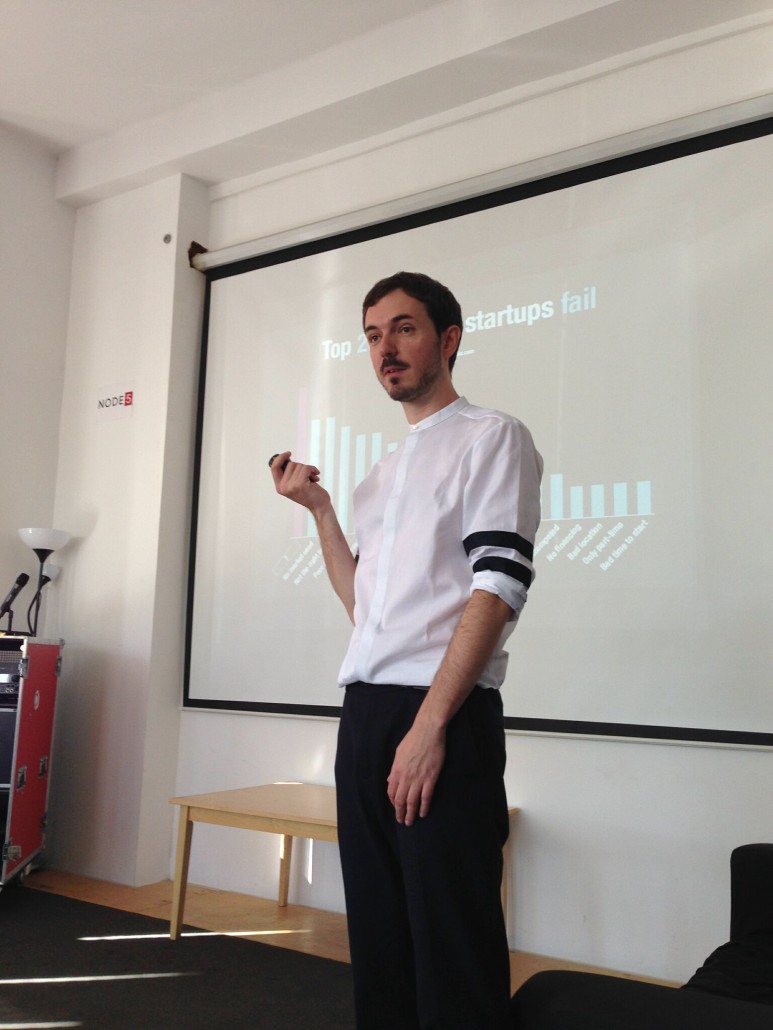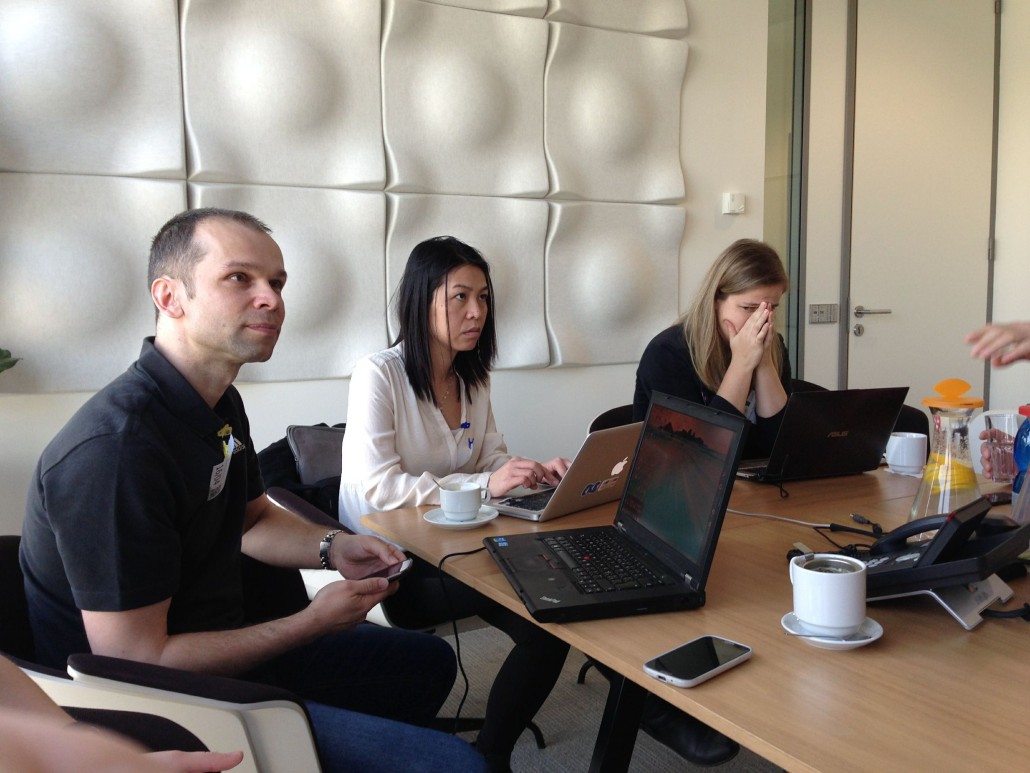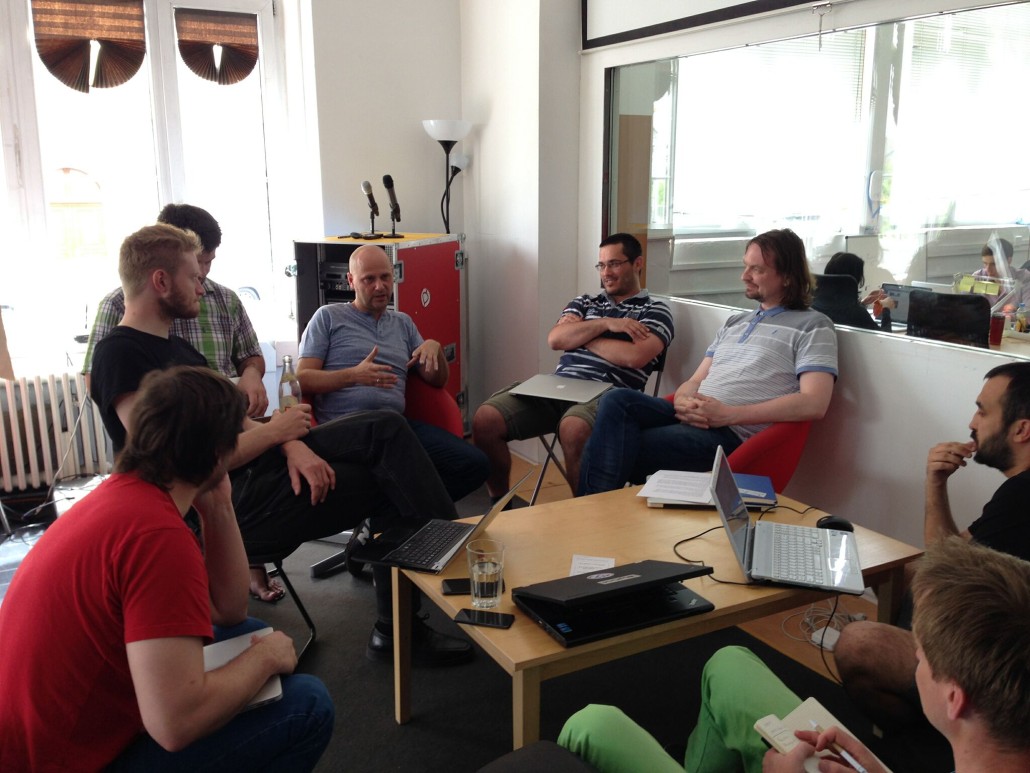StartupYard Month 2: The Emotional Journey
The StartupYard teams have spend 2 months at the accelerator so far, and it’s past time for a look at how they’re all doing. An accelerator round goes by in a big blur. You can hardly believe, when it’s almost over, that you’re talking to the same people who started the journey together just a few months ago. It’s an emotional experience, as well as an intellectual one, and I’m going to talk about that emotional journey.
Frustration
A big and necessary part of the accelerator experience is frustration. Frustration with oneself, with a lack of time, with the difficulty of certain questions, and with the fluidity and uncertainty surrounding so many important decisions. Everything is in a rush, but at the same time, everything depends on someone else’s input, or someone else’s time, be it a team member, a StartupYard team member, a mentor or advisor, or even an investor.
Between daily meetings with up to 5 mentors, meetings with test users, pilot customers, early investors, and the StartupYard team, there isn’t a lot of time to do what the startup teams are used to doing with their days- working on their products and making them better. The life of a startup is highly dependent on influencing other people to make fast decisions, so we all get a little harried from time to time.
I caught myself recently asking the startups to fill in their company information for the Demo Day program (we hope to see you there May 28th!), and writing “get this done ASAP.” One of the startups pluckily responded via the #events Slack Channel. “Everything is ASAP!” He was right, and in truth, I could have waited more than a week to get their feedback. But in the constant push to cut through and grab their attention, I had accustomed myself to demanding that they do everything I ask of them immediately, lest they forget to ever do it at all.
But a certain level of frustration is necessary because at StartupYard, the goal is to interrupt and challenge a startup’s established patterns, and force the teams to face issues they might, left alone, choose to ignore, with possibly fatal results.
We ask big questions, in our mentorship sessions and workshops, and we ask them of teams that don’t always have enough data to answer them. That’s to the good. Because every time a startup founder doesn’t know the answer to a question, they’re reminded, or they can discover, that they have more to learn and more room to improve.
Still, the experience is one of constantly feeling behind: by the time the founders answer our demands for business plans, user projections, financial projections, and marketing plans, we’re on to new and more complex demands.
There’s no slowing down to celebrate small victories- and nothing is ever really finished. That’s a recipe for a certain level of frustration, and the only way to overcome it, eventually, is to do more than they’ve ever done before, in less time than they thought they could.
Ego
I think it takes a certain kind of person to quit their job, spend their savings, and build something no one has ever built before, with the certain knowledge that it’s brilliant and unique enough to a) get someone else to pay for it via an investment and b) eventually get people to buy that thing, and get potentially dozens or even hundreds of people to devote their working lives to building and maintaining it.
We say that startups have their own unique cultures- well it takes a certain kind of ego to think that they’d be happier and better off starting something like that from scratch. So I have immense respect for the people I work with on a daily basis.
These people couldn’t do what they do if they didn’t have powerful egos. At the same time though, the accelerator process is a repeated assault upon ego, pride, and a person’s sense of themselves and the truth of their personal vision.
Every round, we see startup founders follow a similar emotional path. They come in at the top of the pile- the best handful of startups out of an application round of over 200. They know they’re hot shit, and they have accomplishments to be genuinely proud of.
And then mentoring starts, and they’re almost constantly on the defensive for the next month and a half. Every advisor and mentor has a different opinion, but they all reassure the startups that they *definitely* aren’t ready yet.
Nothing satisfies. Nothing is where it needs to be.
Just when these mentoring sessions start to slow down, and the startups now have a really good sense of how to talk about their companies and the direction they want to go, a new assault begins. In month two, we bring in domain experts in UX/UI, publicity, marketing and growth hacking, and financial planning, and we beat them all back down again.
Last week, Fiodor Tonti, a team member at LeCamping, in Numa Paris, came to Prague to do a private workshop on UX design with our startups. One of the startups came out of a session with him and told Cedric, our MD, “that was devastating.”
Later in the day, we sat with another startup doing live user testing, and a dozen people watched as a test user stated that they were ready to quit trying to use the application, because the onboarding process was just too frustrating.
A few weeks ago, I gave a workshop for our startups on homepage/landing page design. Then I stood up in front of all the startups, and we critiqued each of their homepages together, in some detail. They were hard on each other. One of the teams commented afterward. “I can’t believe how bad our homepage is. I didn’t see how big a problem it could be.”
Software engineers, in their comfort zones, are not used to the creative suffering involved in watching their work being misunderstood, or worse, actually disliked and dismissed. Most work on minute, specific problems, the solutions to which may be complicated, but are at least fairly clear. But startup founders work on big, holistic problems, the solutions to which are far from clear, and so their egos suffer miserably when their noble efforts fail, as they invariably do in some way.
Fear
Of course, we’re all afraid of failing. And with startups, failure is perhaps not the most expected result, however, it is definitely the most common. And as Frank Herbert famously wrote in Dune, “fear is the mind-killer.” Fear stops you from acting, even when action is necessary. The thinking goes, I suppose, If I don’t make a decision, I can’t fail. Or at least, if I fail because I don’t act, I will at least know why I failed.
Inaction in the face of fear is a way of staying in control. So it goes with many of our founders, especially in their first month or so. In the face of harsh feedback, or suggestions they don’t agree with, or weren’t expecting, they don’t refuse to listen. They simply refuse to act. They say: “yeah, I’ll think about it,” or they’ll make other excuses: “well I’ll work on that stuff when I’ve finished doing X, Y, and Z.” Of course, X, Y, and Z are never-ending jobs, like working on their backends, or their webpages, or refining their mobile apps, or introducing new features.
Sometimes founders get stuck in a rut that seems incredibly productive, from their perspective. They’ll work on a new feature, and then realize that the backend needs to be reconfigured, only to discover that they need to develop something else from scratch to make that work, and pretty soon they’re rebuilding their whole product.
One team, until well into the second month of the program, couldn’t be convinced to start developing new features and testing new business models. They had gotten so used to focusing on their existing users, most of whom were not paying for the service, that their answer to anything new was to study their existing userbase.
A fear of losing something they’d gained, even if there wasn’t as much value in it as they had thought, was hard to overcome.
Similarly, another startup this year had great difficulty in deciding to rebrand. Despite a large number of downloads of their app, their paid userbase was small, and their traction was relatively poor.
Rebranding in this case was meant to improve user retention, because it appeared that users coming to the app were not really the right market for it. It got downloads, but it didn’t convert. The idea for this founder of giving up app-store positioning and rebranding away from a name that had so many downloads was very difficult. The fear of letting go of what he had in favor of what he might get was real. But in the end, he made the decision to rebrand.
On another team, the founders repeatedly missed other deadlines during the first month of the program, because they were so focused on finishing and distributing a new release of their product. Meanwhile, we had to work to convince them that the feedback they were getting was as relevant to the new product as to the existing one. Their answer, every time someone brought up a problem with their model or their product, was that it would be fixed in the next release.
Engineers and developers build. That’s what engineers and developers are good at, so that’s what they want to do. And when it comes to user-testing, and talking to investors, the new features and the new plans are always on the horizon- something to be talked about, but not revealed. Constant work is a way of putting off criticisms, and putting off the fear of failure.
And one can always point to future plans and future features which will make the criticisms of today obsolete. We see founders duck these problems all the time, telling mentors that they’ll have everything solved when the new update comes out, or the new marketing manager gets hired. As any accelerator can tell you, this can become a bit like school- founders fall into the same patterns they’ve had since childhood, to avoid doing the things they don’t like doing, or are afraid to fail at.
The old saying “the better is the enemy of the good,” is something I find myself saying very often. Along with another stock phrase our startups become very tired of hearing: “If it’s stupid, and it works, it’s not stupid.”
Not accepting current and past failures just perpetuates them. and focusing on the future means you’ll constantly be catching up to yourself- constantly making teh same mistakes. You can’t learn from something you aren’t willing to face up to, and a big part of the learning curve at StartupYard is in gaining the willingness not to make excuses.
One of our founders came to me this week, having made a realization about his priorities in this regard, and said: “I feel like I have to learn to become a different kind of person now.” In a sense, he does. He has to hang onto the tenacious effort and skill that got him this far, but he also has to accept his limitations, and be ready to fail at new things.
Programmers are possessive of their work and of their ideas. Putting them out in the world, testing them, and seeing what people think about them, means giving up ownership, and giving up control. If I let someone see my work, I don’t own it anymore- I can’t control what they think about it. That can be a terrifying feeling.
Wisdom
So far, I suppose I’ve made the StartupYard experience sound pretty negative. Well there are tough moments for all of us. If it wasn’t hard, it wouldn’t be worth doing.
The only way to become wise, is to fail. To push past frustration and ego, you have to accept failures and learn from them, rather than dooming yourself to repeat them again and again. Often when I am recruiting applicants for StartupYard, I tell them this: “an accelerator speeds up failure, and gives you a place where failing is acceptable, and profitable.”
So in that light, as our startups are just beginning to practice their pitches and prepare for their premieres at Demo Day, I like to see the final phase of StartupYard as the most constructive. Having exposed themselves to a great deal of criticism, advice, and probing explorations of their motivations and their abilities to deliver on their claims and their visions, the startup founders are now much wiser than when they started.
Questions and doubts don’t bother them. Criticisms are expected and welcomed. in two short months, they’ve found every way to fail, and are ready to succeed.
Joy
I used to teach high school English. I loved the work, but I mostly hated the job. Schools were underfunded, and overcrowded. Teachers got little respect, and even less pay. Much of the job is demoralizing, and the hours are long, and often boringly repetitive. You experience the same problems over and over, and have little power to effect change.
However, there were moments I had as a teacher which I will remember for the rest of my life. A student, some years after being in one of my classes, ran into me in the street, a fully grown adult, and stopped me to tell me that I had changed his life. That he had decided to study English, and he had gotten involved in local politics, and that my lessons had changed his worldview, and given him hope for his future. I was blown away. That’s something teachers live for, and rarely get.
With startups, it’s much the same. The hours are long, the pay is not good (or non-existent), and founders often have to question whether they’ve been wasting sometimes years of their lives. They’re sometimes seen by their friends and family as dreamers, or unrealistic. They’re constantly being doubted and tested by others. And then something can happen: the first paying customer, the first happy testimonial from a user, the first really killer pitch, and an investment offer. This happens every year with StartupYard, and it’s magic.
The joy of having created something, and having gotten that thrill of seeing it succeed in some way; change someone’s life or even just make their day better, is unparalleled. That’s not a feeling you’re likely to get in your typical day job, because there, our accomplishments are never really our own- we are just doing our part.
As a startup founder, you’re insisting that there’s a new way of doing things: a new model that works more. Seeing that validated, for real, is a unique experience, and one I love to witness.









